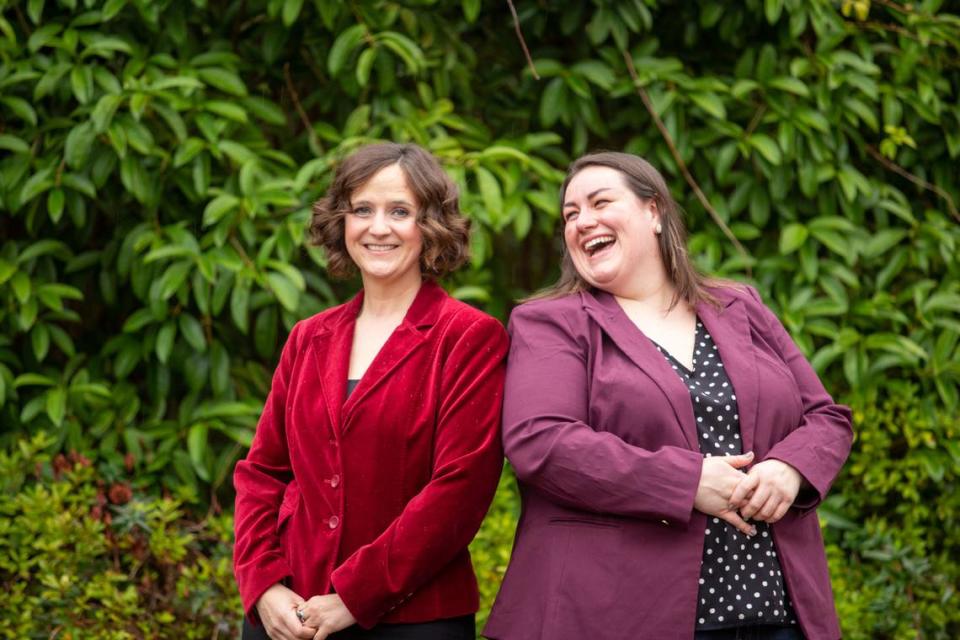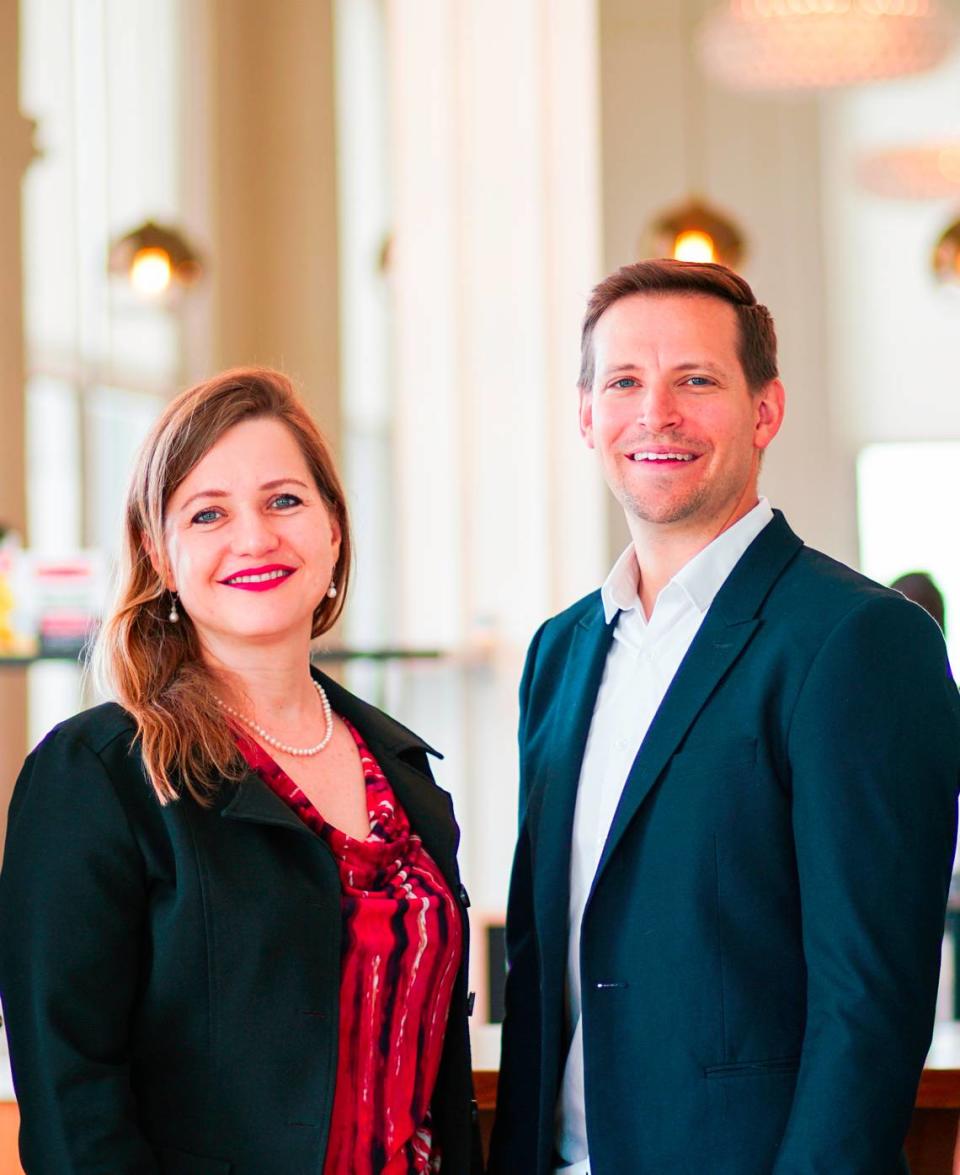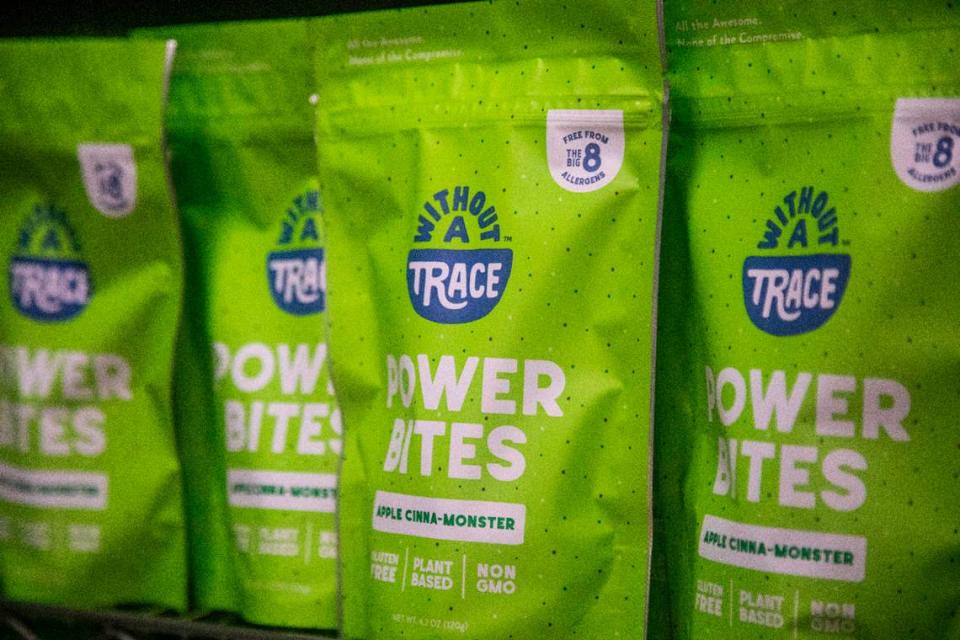13 women-led startups in the Triangle you should keep an eye on
Women-led startups often face higher obstacles when it comes to raising capital, a fact that has remained stubbornly true for years.
In 2019, for example, less than 3% of all venture capital investment went to women-led startups, and just one-fifth of investments are going to teams with at least one woman on board, Techcrunch reported.
These trends remain, despite the fact that female participation in tech industries has increased. Women now make up more than half of creative-class jobs, according to a Bloomberg report, and make up 30% of all high-tech employment.
North Carolina ranks second in the country for female participation in tech, with women making up 35.4% of its tech workforce, according to the N.C. Tech Association.
But there are signs that perhaps momentum is growing for women-led startups.
In 2020, four of the 15 biggest funding rounds in North Carolina went to female-led or founded companies.
Last year’s biggest acquisition in the state was AskBio, a gene-therapy company bought by Bayer in a deal worth up to $4 billion. Its CEO and co-founder, Sheila Mikhail, is part of just the 5% of CEOs, founders and presidents at biotech companies in the state that are women, according to an analysis by N.C. Biotech.
And this year’s biggest exit could come from Humacyte, another woman-founded biotech company.
The following list isn’t intended to be a comprehensive look at the women-led startups and entrepreneus in the Triangle. But they’ve been making headlines for their interesting work and financial successes, and we’re keeping an eye on them as they make their mark in North Carolina — and beyond.
Allobee
Brooke Markevicius had worked at fast-paced startups for years, but when she decided to have children, she didn’t feel like her workplaces were compatible with motherhood.
So she left to do freelance work, and soon realized it was difficult connecting with small businesses that might need work.
So in 2019, after moving from Seattle to Durham, she started Allobee, a marketplace that connects freelancers with flexible work at a variety of companies.
Markevicius just raised a seed investment of $500,000 in January.

Atsena Therapeutics
Atsena Therapeutics, the brainchild of Shannon Boye, a scientist at the University of Florida, opened up shop in Durham last year and immediately started raising significant amounts of money from investors.
The company, which uses gene therapy to treat a form of blindness in children, raised more than $55 million last year, one of the largest sums in the entire state.
The company’s experimental gene therapy treats Leber congenital amaurosis (LCA), a genetic eye disease that is one of the leading causes of blindness in children. It affects about one to two babies in every 100,000 births, according to the National Organization for Rare Disorders.
Bee Downtown
At almost every corporate campus in the Triangle, you can find a bee hive. That’s thanks to the efforts of Leigh-Kathryn Bonner’s company, Bee Downtown.
Bonner’s company maintains hundreds of beehives on corporate campuses around the Triangle, creating a connected ecosystem of colonies that stretches 60 miles from Garner to Chapel Hill. It has expanded to office towers and campuses in Atlanta, and the company’s customers include Chick-fil-A’s headquarters in Atlanta and SAS’s campus in Cary.
Bee Downtown now offers education and leadership courses to companies focused around work with hives.
Biomilq
Durham-based Biomilq is trying to do something revolutionary: create a cultured version of milk that mimics the nutritional values of human-produced breast milk.
Feeding newborns breast milk in their first months provides a crucial blend of nutrients for human development. But it’s not always possible. Many women suffer from low milk production or other medical challenges.
Biomilq, founded by Leila Strickland and Michelle Egger, believes it’s on the way to replicating the nutritional profile of breast milk, potentially creating a product that better supplements breast milk than dairy- or soy-based alternatives.
The startup is culturing mammary cells in a lab, and so far it has been able to get the cells to produce human casein and lactose, a protein and a sugar found in breast milk.
So far, the company has raised $3.5 million from investors, including from Breakthrough Energy Ventures, an environment-focused investment group founded by Microsoft founder Bill Gates.

Bright Black Candles
When it comes to national headlines, Bright Black Candles had quite the moment last year.
After the hugely influential Beyoncé gave the company a shout-out, the company’s sales exploded. It still continues to see huge levels of demand.
The young Durham company’s candles honor the Black Diaspora through place and scents. Many of its candles honor important cities in the Black experience, including Durham; Salvador, Brazil; Kingston, Jamaica and Addis Ababa, Ethiopia.
Bright Black’s founder Tiffany Griffin said while the company’s candles are focused on the Black experience, the company has something for everybody.
“This isn’t your mama’s Yankee Candle,” she told The News & Observer last year. “The scents are androgynous, and they fit everyone on the spectrum. People always come up to me and say, ‘Thank you, I don’t have to pick between scents like banana pudding and apple crisp anymore.’”

Bryn Pharma
Bryn Pharma is a Raleigh-based medical device startup with an experimental nasal spray it hopes will become an alternative to EpiPen, the injectable device many people with allergies depend on.
The company was co-founded by Michelle Lobel, and she’s considered the motivating force behind Bryn. Lobel has a severe nut allergy herself.
The startup was among the top fundraisers in the state last year, raising $26 million from investors, The News & Observer reported.
Bryn also boasts a Fast Track designation from the U.S. Food and Drug Administration and is currently applying for approval from the regulator, the Triangle Business Journal reported.
Humacyte
Humacyte has become one of the state’s most valuable startups since Duke University researcher Laura Niklason founded it in 2004. It’s also on the verge of going public at a $1.1 billion valuation, after being approached by Alpha Healthcare Acquisition Corp., a special acquisition company.
Humacyte makes universally implantable bioengineered human tissue. One of its most promising products are bioengineered blood vessels that could be used in patients with end-stage renal disease.
The company has two Phase 3 trials ongoing — one related to vascular repair in trauma patients and another using its blood vessels to help patients with end-stage renal disease receive hemodialysis. Niklason said her company would have the results of those trials next year and could potentially file applications for use with the U.S. Food and Drug Administration in 2023.
Humacyte currently employs around 130 people in the Triangle, and it plans to grow its headcount this year.
Kaleido
Companies around the world are trying to figure out how to use blockchain technology, a record-keeping system that uses a network of computers to document transactions. It was first used to track the ownership of the currency Bitcoin, but it could have myriad applications.
Raleigh-based Kaleido is becoming one of the go-to sources to help them figure it out. The startup was co-founded by Sophia Lopez and Steve Cerveny, who previously worked on blockchain applications at IBM’s Research Triangle Park office.
The company already has nabbed some high-profile clients, like Kroger, T-Mobile and the World Bank, and is helping companies modernize their supply chains and create digital tokens for a variety of uses.

NeuroVice
Ashlyn Sanders started NeuroVice after she was diagnosed with a condition known as a Chiari Malformation — the result of a mass of brain tissue pushed into the spinal canal.
The condition led to emergency brain surgery, but she was left suffering from occasional seizures. The seizures can have painful side effects, especially when they lead to the involuntary clenching of the jaw. The force of the jaw can lead to severely bitten tongues or broken teeth.
So Sanders, whose mother, Machelle Sanders, is the newly appointed N.C. Commerce Secretary, created a device that prevents injuries from those seizure episodes.
Sanders’ invention, which is inserted into the mouth before a seizure, is in clinical development in partnership with Morrisville-based Gilero.
But the company has received some well-known financial backing as it attempts to win approval from the FDA. Former NBA legend Charles Barkley is a seed investor in the company, WRAL reported.

Sani
Sani, started by two North Carolina-based sisters, is trying to create a national e-commerce brand for South Asian fashion.
Niki and Ritika Shamdasani started the company in 2017 to help satisfy their own fashion needs. Often, when looking for formal clothing to wear at events like weddings, the sisters found it difficult to find styles that honored their Indian heritage but also had modern sensibilities.
Now, they have a national reach through their website, and their brand was the first one to offer South Asian designs on the popular Rent the Runway platform.
“We weren’t finding cultural clothing that we wanted or a shopping experience that worked well,” Niki Shamdasani previously told The News & Observer. “When we started asking other South Asian friends and their moms, we realized people were settling for subpar designs and experiences just because there wasn’t anything better out there.”

Slingshot Coffee
While the Triangle is often known for its software and biotech startups, the Triangle also has a burgeoning consumer products industry.
Slingshot Coffee, started by Jenny Bonchak in Raleigh, has been one of the standout companies from the scene. The company has gained traction at places like Wegmans and Whole Foods for its cold brew and coffee sodas.
The company’s investors include Raleigh-based One Better Ventures, an investment firm led by former Burt’s Bees CEO John Replogle, as well as Coca-Cola’s investing arm.

Without a Trace Foods
Last year, Brooke Navarro decided to quit her job in the world of high finance and move south from New York to Raleigh. Just a few weeks after making that decision, the pandemic shut down the entire country.
When she landed in Raleigh, she decided to finally pursue a passion project and started Without a Trace Foods, a startup manufacturing allergy-free snacks. The snacks are free of the eight most common food allergies: peanuts, tree nuts, milk, eggs, wheat, soybean, shellfish and fish — as well as sesame seed and gluten.
Navarro, who is allergic to peanuts, tree nuts, eggs and sesame, said she has long struggled to find reliable snacks without those allergens, especially ones suitable for kids at school. She is hoping her e-commerce startup can change that.
“We wanted to create, not just a product, but a trusted brand for families who are navigating food allergies,” Navarro said.

Virtue Labs
Raleigh-based Virtue Labs has gained a lot of attention in recent years for its hair, skin and nail treatments, with the company even enlisting actress Jennifer Garner to promote its products.
Founded by Melisse Shaban in 2013, the company repurposed a keratin protein-based technology that was meant to treat wounded soldiers.
After experimentation in the lab, the product proved to be beneficial to hair. The company now offers a fleet of hair treatments using the technology.
Last year, the company raised $28.6 million from investors.

This story was produced with financial support from a coalition of partners led by Innovate Raleigh as part of an independent journalism fellowship program. The N&O maintains full editorial control of the work. Learn more; go to bit.ly/newsinnovate

